These are the typical signs that you are suffering from a vitamin deficiency.
Although we feel we are eating more and more consciously and healthily, a vitamin deficiency is pre-programmed in many people. On the one hand, this may be due to the fact that one’s diet is not as balanced as one thinks. On the other hand, many other factors can also be responsible for a nutrient deficiency. Read below to learn how vitamin deficiency can occur. We’ll also explain the signs that should set your alarm bells ringing.
How a vitamin deficiency can develop
Vitamin deficiency can occur for a variety of reasons. Here are a few important points you should consider:
Inadequate nutrition
If your diet is not balanced and you do not eat enough vitamin-rich foods, you may develop a vitamin deficiency. This can happen if you don’t eat enough fresh fruits, vegetables or whole grains, for example.
Vegetarian or vegan diet
If you eat an exclusively or mostly plant-based diet, it may be more difficult to absorb certain vitamins. For example, a deficiency of vitamin B12 can occur, as this is mainly found in animal products.
Digestive problems
If you have digestive problems, your intestines are out of balance or the intestinal mucosa is even permeable (leaky gut) or you have an inflammatory bowel disease, the absorption of vitamins may be impaired. This can cause a vitamin deficiency.
Alcohol consumption
Excessive alcohol consumption can interfere with the absorption and utilization of vitamins in the body. In particular, vitamins B1, B6, B12 and folate can be affected.
Medication
Certain medications can affect vitamin absorption or increase the need for certain vitamins. This can lead to a vitamin deficiency. For example, long-term antibiotic use or stomach acid blockers can reduce the absorption of vitamin B12.
Stress
Prolonged and intense stress can lead to an increased need for certain vitamins as the body uses more energy. Vitamin C and B deficiency is most common during stressful times.
Intensive sport
Regular and intensive sports can cause vitamin deficiency. Your body then consumes not only more energy, but also more nutrients. Vitamins such as vitamin D, E, B and C are important for muscle regeneration and energy metabolism.
Pregnancy and lactation
During these phases, your body also often gives you the signal that you could “eat for two.” If we then reach for high-calorie, low-nutrient snacks, a vitamin deficiency is inevitable.
Aging
With age, digestive functions may slow down and the body’s ability to absorb vitamins from food may be impaired. In particular, the absorption of vitamin B12, which is important for the function of the nervous system, can decrease with age.
These are just a few factors that can lead to vitamin deficiency. It is important to have a balanced diet and consider supplements if necessary to ensure you are getting enough vitamins.
You can recognize whether you have a vitamin deficiency by the following alarm signs.
Alarm signs of vitamin deficiency
There are several alarm signs that can indicate a possible vitamin deficiency. If you notice the following, a vitamin deficiency might be a consideration:
- Fatigue and exhaustion: A common sign of vitamin deficiency is persistent fatigue, even after adequate sleep.
- Weak immune system: frequent colds, infections or slow wound healing may indicate vitamin deficiency, especially vitamin C and vitamin D.
- Hair and skin problems: Brittle hair, hair loss, dry skin or poor wound healing may indicate a vitamin deficiency, such as biotin or vitamin E.
- Muscle weakness and tingling: If you suffer from muscle cramps, muscle weakness or tingling in the limbs, this could indicate a vitamin deficiency such as magnesium or B vitamins.
- Digestive problems: Regular digestive problems such as diarrhea, constipation or stomach cramps may indicate a lack of B vitamins or vitamin D.
- Mood swings and depression: Vitamin deficiencies, particularly deficiencies in vitamin B12 and vitamin D, can affect mood and lead to symptoms such as anxiety and depression.
- Cognitive problems: memory problems, difficulty concentrating, or decreased mental clarity may indicate a vitamin deficiency, especially vitamin B12.
However, diffuse symptoms such as fatigue can also indicate other health issues. Sometimes this is also a sign that your liver is overloaded or your cortisol level is too high.
What you can do to combat vitamin deficiency
As you can see, vitamin deficiency can have many causes and manifests itself in a variety of symptoms, ranging from tiredness and fatigue to serious health problems. A balanced diet is the key to avoiding vitamin deficiency, but sometimes this alone is not enough. You are doing something good for your body if you take a good organic multivitamin every day. So you can always be sure that your body is well supplied.
When choosing a multivitamin supplement, it is important to choose one that offers a broad spectrum of vitamins and minerals in balanced amounts. The Ogaenics organic multivitamins offer you a balanced combination of 17 essential vitamins and minerals from plant sources that your body can absorb particularly well.
In addition to supplementing with multivitamin supplements, lifestyle changes can also help to prevent vitamin deficiency. This includes getting enough exercise, avoiding excessive alcohol consumption and smoking, getting enough sleep and managing stress, and making sure you get enough sunlight to boost vitamin D production.
Tailor-made multivitamins to combat vitamin deficiency for women and men
-
Bestseller
Mr Do-It-All 18+
Organic Multivitamin Complex Premium for men between 18 and 44, All-In-One67,92 €79,90 €2.069,95 €1.759,59 € / kg -
Bestseller
Mr Do-It-All 45+
Organic Multivitamin Complex Premium for men aged 45 and over, All-In-One67,92 €79,90 €2.048,72 €1.741,54 € / kg -
Bestseller
Mrs Do-It-All 18+
Organic Multivitamin Complex Premium for women of fertile age, All-In-One!67,92 €79,90 €2.302,59 €1.957,35 € / kg -
Bestseller
Mrs Do-It-All 45+
Organic Multivitamin Complex Premium for menopausal women, All-In-One!67,92 €79,90 €1.997,50 €1.698,00 € / kg -
Bestseller
Mrs Do-It-All 55+
Organic Multivitamin Complex Premium for women after the menopause, All-In-One!67,92 €79,90 €1.997,50 €1.698,00 € / kg
It is important to pay attention to your own body’s signals and seek professional advice if you suspect deficiency symptoms. With the right measures, everyone can keep their vitamin levels in balance and improve their well-being.
If you’d like to delve further into the topic of vitamin deficiencies and proper vitamin intake, you can find out more in our article “8 Typical Vitamin Intake Mistakes.”
References:
(1) Die Welt from 29.11.2016, page 28, “Deutschland, deine Gemüsemuffel”
(2) https://www.gesundheitlicheaufklaerung.de/obst-gemuese-verlieren-a-naehrstoffe


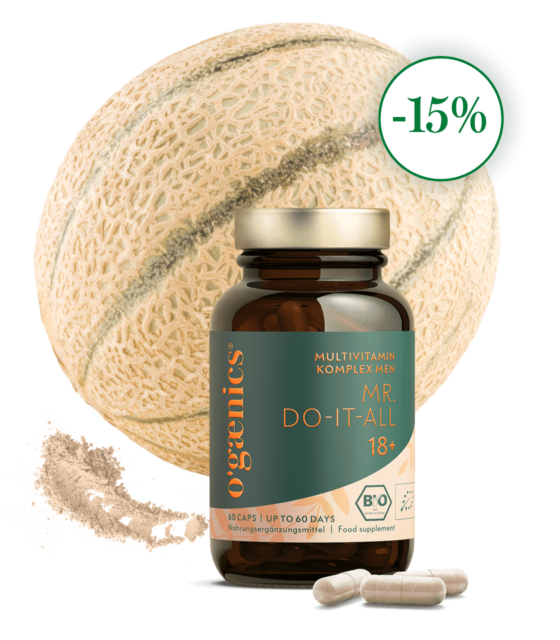
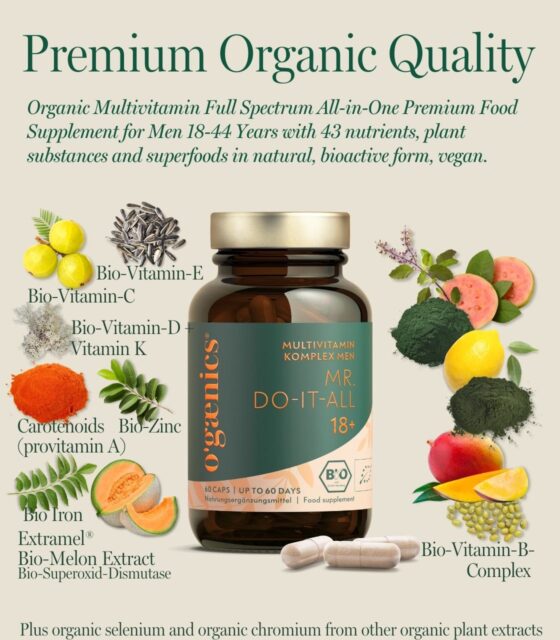
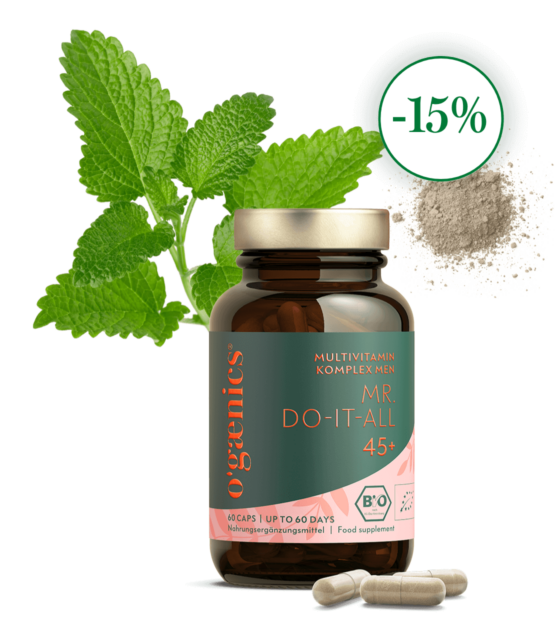
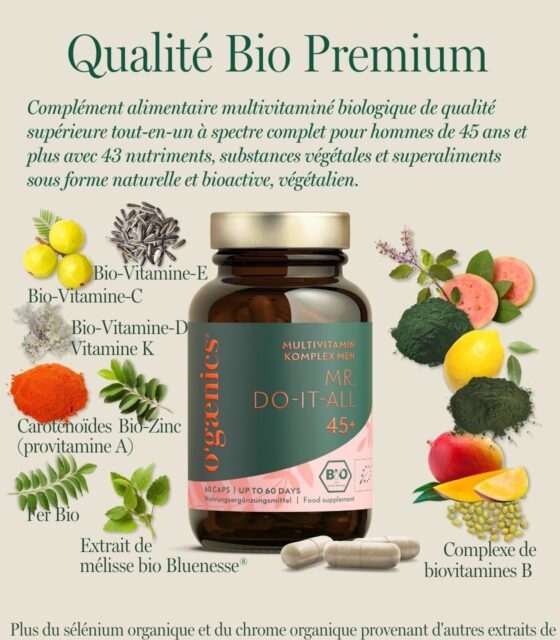
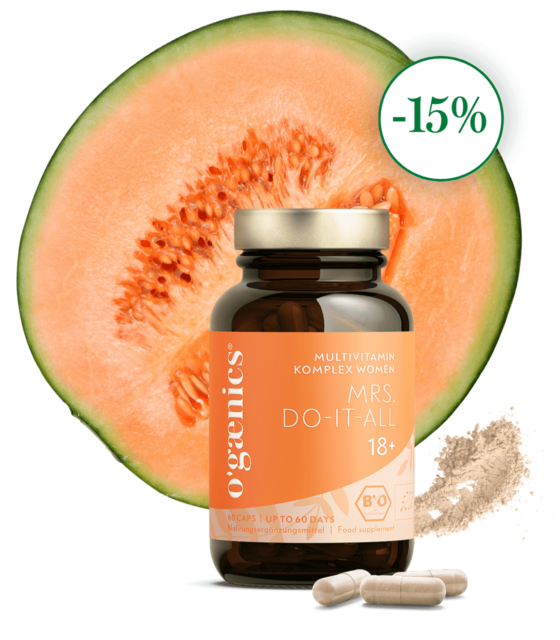

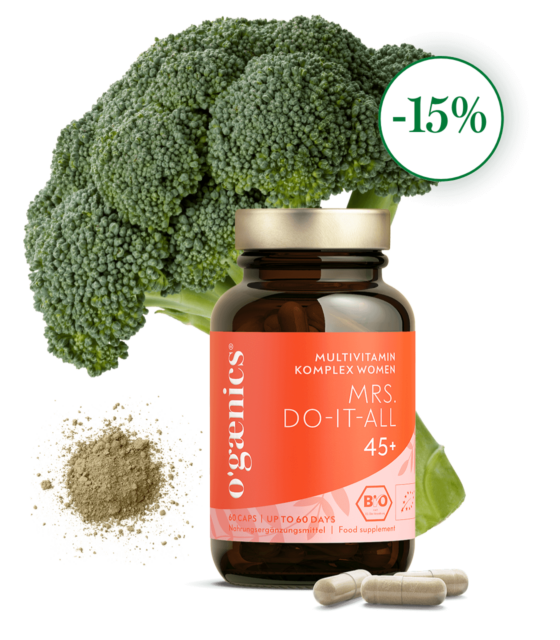

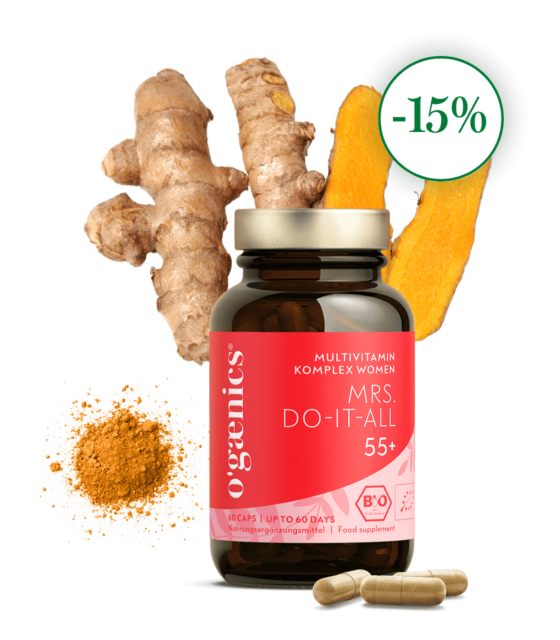

 No products in the cart.
No products in the cart.